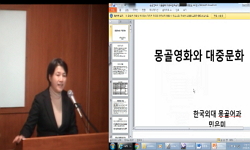This study aims at figuring out changes in Sino-barbarianism (華夷論, The theory that distinguishes China and Barbarian) through analyzing the changes in recognition of the Yuan Dynasty in the Early Joseon Dynasty. After foundation of Joseon, intel...
http://chineseinput.net/에서 pinyin(병음)방식으로 중국어를 변환할 수 있습니다.
변환된 중국어를 복사하여 사용하시면 됩니다.
- 中文 을 입력하시려면 zhongwen을 입력하시고 space를누르시면됩니다.
- 北京 을 입력하시려면 beijing을 입력하시고 space를 누르시면 됩니다.

조선초기 원조(元朝) 인식과 화이론 = Changes in Recognition of Yuan Dynasty and Sino-Barbarianism(華夷論) in Early Joseon Period
한글로보기https://www.riss.kr/link?id=A105677987
- 저자
- 발행기관
- 학술지명
- 권호사항
-
발행연도
2018
-
작성언어
-
-
주제어
華夷論 ; 몽골 ; 韃靼 ; 用夏變夷 ; 胡元 ; 정통론 ; Sino-barbarianism ; Mongol ; Tartar ; Yonghabyeoni ; barbarian Yuan ; Discourse on Legitimate
-
등재정보
KCI등재
-
자료형태
학술저널
-
수록면
191-223(33쪽)
- DOI식별코드
- 제공처
- 소장기관
-
0
상세조회 -
0
다운로드
부가정보
다국어 초록 (Multilingual Abstract)
This study aims at figuring out changes in Sino-barbarianism (華夷論, The theory that distinguishes China and Barbarian) through analyzing the changes in recognition of the Yuan Dynasty in the Early Joseon Dynasty. After foundation of Joseon, intellectuals still maintained Sino-barbarianism of the late Goryeo dynasty that focused on the situation and the culture. King Sejong(世宗, 1418-1450) emphasized Yonghabyeoni(用夏變夷) characteristics of former foreign dynasties to establish position of Joseon second to China. Therefore the Yuan dynasty could maintain legitimacy during the reign of King Sejong.
During the reign of King Sejo(世祖, 1455-1468), race-oriented Sino-barbarianism was magnified based on intensified study of Zhu Xi(朱熹, 1130-1200) and Master Hu’s tradition of the Spring and Autumn Annals(春秋胡氏傳). Therefore race-oriented Sino-barbarianism and former Sino-barbarianism existed together during the reign of King Sejo. During the reign of King Seongjong(成宗, 1469-1494), race-oriented Sinobarbarianism was streng Confucian scholars led by Kim Jong-jik(金宗直, 1431-1492) despised the Yuan Dynasty as a foreign dynasty and denied its legitimacy with calling it barbarian Yuan(胡元). Therefore the changes in recognition of the Yuan dynasty in the Early Joseon dynasty shows how ideological trends of the late Goryeo dynasty were changing in Joseon.
동일학술지(권/호) 다른 논문
-
6세기 동아시아에서의 책봉호의 정치적 의미 ― 국제정세의 변동과 백제의 책봉호에 반영된 인식을 중심으로 ―
- 수선사학회
- 정동준 ( Jeong Dong-jun )
- 2018
- KCI등재
-
백강(白江)전투 이후 당조(唐朝)의 대왜(對倭) 외교 인식 변화와 왜(倭), 신라(新羅)의 대응
- 수선사학회
- 서광석 ( Seo Kwang-suk )
- 2018
- KCI등재
-
고려의 대후당(對後唐) 외교와 신라 ― ‘존왕론(尊王論)’의 전개와 관련하여 ―
- 수선사학회
- 윤경진 ( Yoon Kyeong-jin )
- 2018
- KCI등재
-
거문도사건을 통해 본 1880년대 조선의 자국인식과 외교정책
- 수선사학회
- 천수진 ( Cheon Su-jin )
- 2018
- KCI등재





 KISS
KISS






